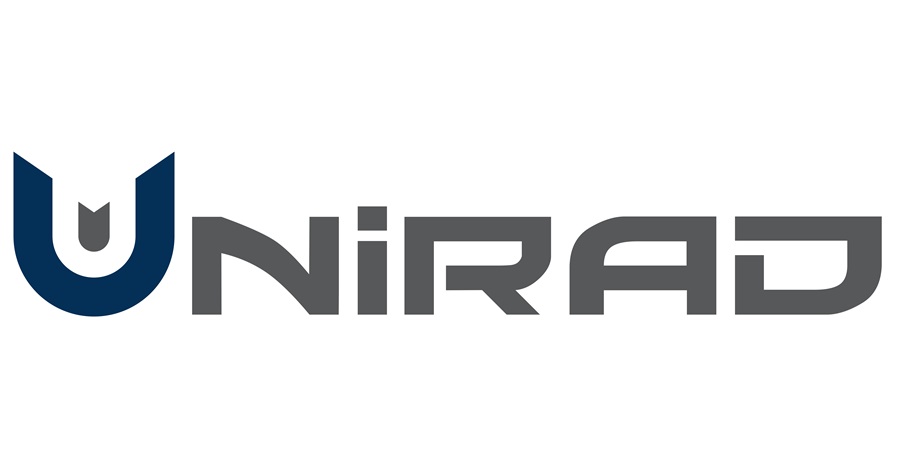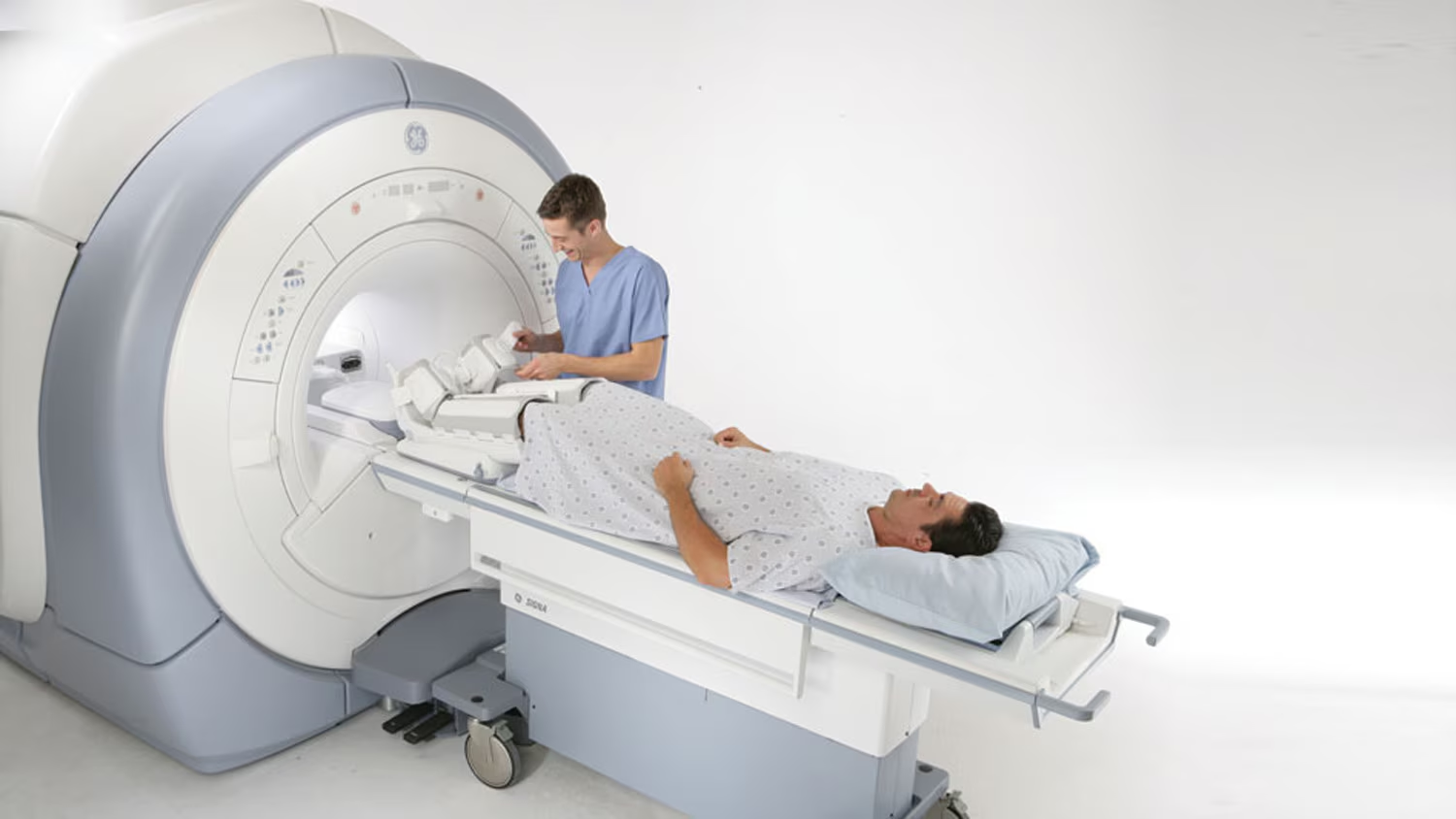Table of Contents
A medicated MRI is an imaging method performed by injecting a medicated substance into the patient, compared to a normal MRI. MR is the most advanced and high-level imaging method in medical terms. It does not harm the body. A medicated MRI is requested for a more detailed visualisation of tissues. If the tissues are abnormal, these can be seen more clearly with a medicated MRI. In this method, a contrast substance is injected into the patient. This imaging method takes longer than normal MRI.
In which cases is a medicated MRI performed?
Since medicated MRI is often confused with normal MRI, one may wonder, ‘What areas of use of medicated MRI?’ Medicated MRI, in other words, is used for more detailed imaging of tissues and organs. Blood vessels, tissues, and organs are visualised more clearly. In addition, soft tissue and the nervous system can be examined with a medicated MRI. It is frequently used in the spinal cord and brain imaging. It is used in aneurysms, brain damage detection, cancer detection, MS detection, spinal cord injuries, stroke risk, eye problems, and inner ear problems. It is also used to visualise blocked blood vessels in the cardiovascular field, damage caused by heart attacks, heart diseases, inflammation of the tissue surrounding the heart, aortic problems, and problems with the heart structure. In orthopaedics, it is often used to detect arthritis, bone infections, tumours, joint damage, spinal disc problems, and nerve problems. In addition, it is used in breast cancer screening to determine how large a tumour is, to check whether the treated tumour has recurred, and to check breast implants in women.
Advantages and risks of MRI with medication
A medicated MRI provides a comprehensive scan. Tissues, organs, vessels and nerves are visualised, providing more precise disease information. Diagnosis is facilitated by this method using radio waves. It includes obvious information, especially in cancer diagnosis and whether it has spread. Thanks to medicated MRI, early diagnosis is provided, and early treatment is initiated. Very rarely, nausea, headache, or burning at the point where the drug is administered may occur due to the contrast agent used in medicated MRI. Some patients may experience some discomfort if they have claustrophobia. There may be a risk of allergy, but the patient’s medical history is taken before this imaging method, and a diagnosis method is determined accordingly.
How to take an MRI with medication
Before the medicated MRI, the patient removes all metal objects from their body. The patient must wear a hospital gown. If the patient fears staying indoors, this should be communicated to the doctor. If necessary, the patient will be given a tranquilliser, But this medication should not be taken without asking the doctor. In MRI with medication, the patient’s intravenous line is opened, and contrast material is injected into the vein. The patient is placed on the scanner table. The MRI device may produce loud noise, but staff can wear earplugs or earphones so the patient is not disturbed. Sometimes, music can be played to the patient to relieve anxiety. When the patient goes up to the scanner, technicians communicate with the patient via intercom. No one is with the patient during the scan. The patient mustn’t move during the scan. If there is movement, the images may not be clear. Sometimes, the patient may be asked to hold their breath during imaging. The technician informs the patient via intercom. If there is a problem during the procedure, the patient can notify the technician via intercom. The patient can go home the same day after the imaging is finished. In the meantime, the radiologist analyses and prepares a report on the scan and asks the doctor who requested the medicated MRI to make an appointment for a few days later. After the medicated MRI, the patient remains under observation for a while. This is important in case of allergic reactions or other symptoms.
What is the difference between MRI and medicated MRI
In a medicated MRI, the patient is given a contrast agent intravenously, whereas in a normal MRI, the imaging is performed without any medication.
Medicated MRI can reveal which diseases.
Blood vessels, organs, tissues, spinal cord, brain, and soft tissues can be seen more clearly with a medicated MRI. Brain damage, cancer, stroke risk, spinal cord injuries, heart problems, bone problems, and tumours can be visualised with medicated MRI.
Is medicated MRI harmful? What are the side effects of medicated MRI?
Medicated MRI is not a harmful method. However, sometimes, some patients may experience nausea, headache, and burning at the point where the drug is administered due to the contrast agent used…. Some patients may experience some discomfort if they have claustrophobia. There may be a risk of allergy.
What are the points to be considered before a medicated MRI?
Patients should first have a kidney function test. It is better to come to the procedure hungry. In addition, foods containing caffeine should not be taken the day before the procedure. It is also appropriate to be screened for allergic reactions before the procedure. All metal objects should be removed when entering the procedure.
What are the points to be considered after medicated MRI?
If the physician has given tranquillisers during the procedure, it is not right for the person to go home alone. However, daily life can be resumed immediately after the MRI. It is better to stay in the hospital for a while, as allergic reactions may occur, although they are rare. Sometimes, nausea may occur after the procedure, but these effects are short-lived. Apart from these, the specialists performing the procedure will inform the patient.
Frequently asked questions about MRI with medication
Is the medicated MRI done on an empty stomach?
Those who have a medicated MRI for the first time are curious about the answer to the questions ‘Is a medicated MRI performed on an empty stomach?’ or ‘Is a medicated MRI performed hungry or full?’ If anaesthesia will be used in the procedure, you may be asked to fast for 6-8 hours before the procedure. If the method is to be performed with anaesthesia, the doctor requesting a medicated MRI informs the patient and directs them to the anesthesiologist.
What are the side effects after medicated MRI?
Medicated MRI side effects are one of the curious topics. Headache and nausea may occur after the procedure, but these are controllable side effects. Allergic reactions may occur, so it would be appropriate to discuss with the physician about which medications you can or cannot use before shooting. There may also be some discomfort for those afraid of closed spaces. It is also helpful to report this to the physician. Medicated MRI damages are also a curious subject. Medicated MRI does not harm.
How many minutes does a medicated MRI take?
The duration of medicated MRI varies according to the region in which the application will be performed. The method, which takes an average of 15-20 minutes, varies depending on the whole body or which organs will be targeted. These times also include preparation. Sometimes, it can last up to 1 hour.
Is a medicated MRI performed for everyone?
Kidney tests may need to be performed first, especially in kidney patients and patients with kidney-related problems, because the drug given is excreted through the kidneys. Alternative examination methods can be considered in this sense.
Can cancer be detected on a medicated MRI?
Cancer can be detected on a medicated MRI. With medicated MRI, tumours in all organs, including the brain and neck, can be visualised. It is also a critical screening method for early diagnosis of cancer.
What drug is used in medicated MRI?
A gadolinium contrast agent is used during medicated MRI. This substance improves the image quality, allowing the vascular system, organs, and soft tissues to be seen clearly.
Can I drink water before a medicated MRI scan?
You can drink water before a medicated MRI
How long does a medicated MRI take
This time may vary depending on the area to be imaged. Sometimes, it may take 15 minutes, and sometimes, it may take over 45 minutes.
Can I eat before a medicated MRI?
Fasting between 4-8 hours before medicated MRI is preferable
What should be considered before a medicated MRI
A nephrologist must be consulted, and kidney tests must be performed. Patients need to drink plenty of fluids. If there is a problem, different tests may be considered. If patients have medical equipment such as dental implants, hearing aids, metal prostheses, pacemakers, etc., MRI with medication is not performed. In addition, solid food can be consumed up to 4-8 hours before the procedure. But it is more appropriate to come hungry. Water can be drunk before the procedure. If a cardiac MRI is to be performed, food should not be eaten for 2 hours before the procedure. Caffeine should not be consumed until 1 day before the procedure. It is appropriate to have a companion for the process. Screening for allergic reactions is also required before the procedure.
What to do after medicated MRI
The patient can be sent home after being under observation for a while after the medicated MRI. It is suitable for the patient to drink plenty of fluids after a medicated MRI. If sedatives have been administered, the patient should not be sent home alone. Regular activities and diet can be continued in the same way. If any side effects occur, the doctor should be contacted. A mild headache or nausea may occur after the procedure. If side effects such as rash and shortness of breath are experienced and the headache and nausea are severe, the doctor should be consulted.
Causes of headache after MRI with medication
The strong magnets in the device may cause headaches. Dizziness and lightheadedness may also occur, but these effects disappear after a short time.
How many days will the medicated MRI result be available?
Many people are interested in the answer to the question: ‘Is the result of an MRI with medication available immediately?’ The result time may also vary depending on the region where the procedure is performed. Generally, the time of a medicated MRI result varies between 1 and 3 days.
In which cases is, a medicated MRI is performed.
It is frequently used in the spinal cord and brain imaging. It is used in aneurysms, brain damage detection, cancer detection, MS detection, spinal cord injuries, paralysis risk, and eye and inner ear problems. It is also used to visualise blocked blood vessels in the cardiovascular field, damage caused by heart attacks, heart diseases, inflammation of the tissue surrounding the heart, aortic problems, and problems with the heart structure. In orthopaedics, it is often used to detect arthritis, bone infections, tumours, joint damage, spinal disc problems, and nerve problems. In addition, it is used in breast cancer screening to determine how large a tumour is, to check whether the treated tumour has recurred, and to check breast implants in women.
Can a medicated MRI be performed during menstruation?
Generally, female patients are curious about the answer to the question, ‘Can a medicated MRI be performed during menstruation?’ Medicated MRI can also be performed during menstruation. There will be no problem.
Can the baby be breastfed after a medicated MRI?
Since the substance given to the patient after medicated MRI can pass into breast milk, some experts argue that babies should not be breastfed for 24 hours after the procedure, but this information is not clear.

